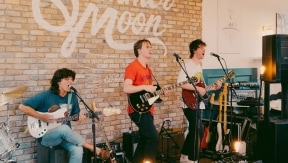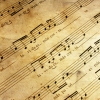
4 hetkeä jotka muokkasivat musiikin historiaa (osa 1)
1900-luvun puolestavälistä asti, musiikki on demokratisoitunut. Kaikki saavat sitä ja sitä löytyy lähes jokaisesta kodista. Musiikin levinneisyys on tuonut mukanaan uusia lahjakkuuksia, uusia sääntöjä ja tapoja toimia.
Tässä on neljä hetkeä, jotka muuttivat musiikin historian suuntaa.
The emergence of distortion

1957
This effect burst on the music scene in 1957 with Johnny Burnette's song "Train Kept a Rollin'." But history attributes its birth to American rock and roll guitarist, songwriter and vocalist Link Wray. In 1958, with the well-named song "The Fuzz,” Wray intentionally pierced his speaker with pencils to produce a distorted effect which completely transformed music. Afterwards, artists realized that they could modify the sound of their instruments artificially which opened doors for music experimentation.
Alan Freed baptizes rock on the radio
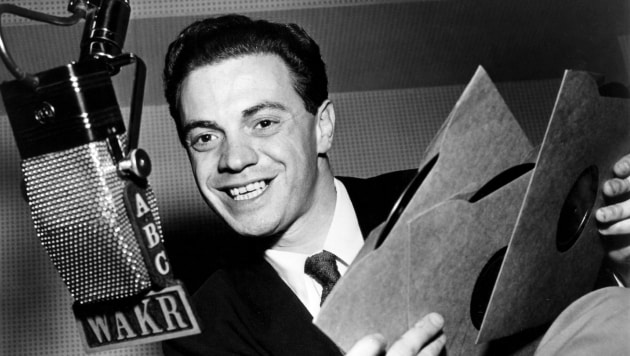
July 1951
At the beginning of the 1950s, in Puritan and segregationist America, it was not fashionable to listen to music sung by artists of color, and much less songs that were spiced with sexual innuendos. Alan Freed, white radio host, didn't seem to take note of the period in which he lived and quickly became a strong supporter of what many of the time referred to as "the devil’s music."
After graduating from various local stations, in July of 1951, he joined the WJM Cleveland Team as late night host. Freed launched the first rock radio broadcast to a large audience: "Moondog's Rock'n'Roll Party." The show's name was inspired directly by an expression used in many rhythm and blues songs of the time. At the time, the words "Rock" and "roll" were sexually suggestive. Even if this DJ has undoubtedly helped rock'n'roll find its name, credit can't be fully given to him for coining the term since trio harmony singing group, The Boswell Sisters, used it for the first time back in 1934.
"The day the music died"
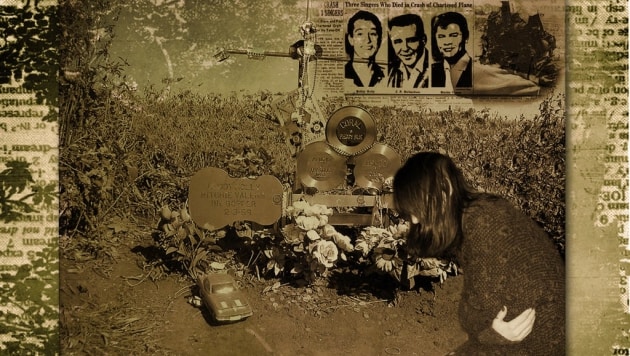
February 3, 1959
The winter of 1959 may well be one of the most vicious that the Midwest had known, but it was out of the question to cancel The Winter Dance Party Tour, a marathon of shows bringing together three young pillars of rock and 'emerging' roll: Buddy Holly ("Peggy Sue"), Ritchie Valens ("La Bamba") and J.P. "The Big Bopper" Richardson ("Chantilly Lace"), respectively 22, 17 and 28 years old at the time. The trio lost their lives in a plane crash that served to bring them home after the concerts in Clear Lake, Iowa.
At 0:55 am when Holly settled in alongside Peterson, the pilot, Big Bopper and Valens took their place behind them. Visibility was almost zero, darkness almost total, the light soon to be snuffed out completely. Realizing that he would have a hard time steering the small plane in the dark, Peterson likely decided to trust his radar. But while he thought to be gaining altitude, the aircraft was actually plummeting to the ground at over 200 km/h, leaving no chance of survival for the passengers. This tragedy would be remembered as the "day the music died," an expression that appeared the next day in the press and also became notorious thanks to the classic American song: "American Pie" by Don McLean.
The Beatles, "more popular than Jesus"
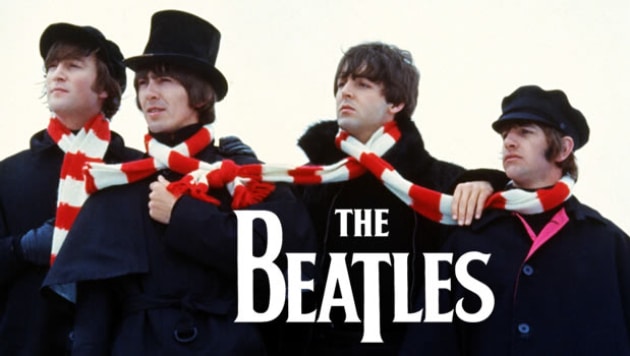
March 1966
In March 1966, in a press interview, The Beatles singer and guitarist, John Lennon, was cited as saying the sentence that sent shockwaves around the world: "Christianity will go. It will vanish and shrink. I needn't argue about that; I'm right and I'll be proved right. We're more popular than Jesus now; I don't know which will go first – rock 'n' roll or Christianity. Jesus was all right but his disciples were thick and ordinary. It's them twisting it that ruins it for me.” A wave of hatred followed his remarks and the Beatles were censored in several countries, death threats were made against Lennon and records burned in public squares in response to what was considered by many to be a grave provocation.
Read more history
- 4 hetkeä jotka muokkasivat musiikin historiaa (osa 2)
- 8 tapahtumaa jotka muovasivat musiikin historiaa
Julkaistu: 1. marraskuuta 2018



